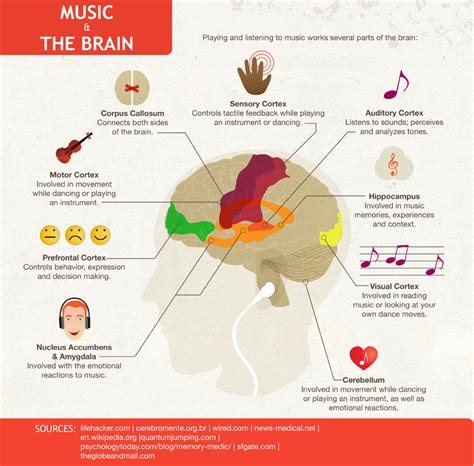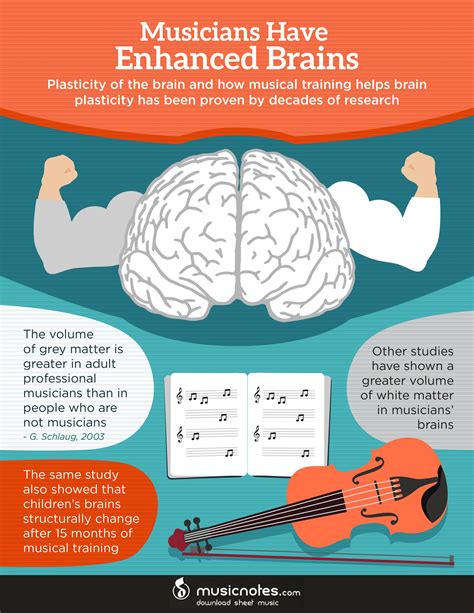Contents
Exploring the Connection Between Music and Emotions – The Energy of Music
Music has a novel skill to evoke feelings and create a deep reference to its listeners. Whether or not it is a catchy pop music that makes you need to dance or a melancholic melody that brings tears to your eyes, music has the ability to maneuver us in ways in which phrases alone can’t. However what’s it about music that elicits such sturdy emotional responses? On this article, we’ll delve into the fascinating connection between music and feelings, exploring the science behind it and inspecting real-life examples.
The Science Behind Music and Emotions
Analysis has proven that music has a direct affect on our mind and may affect our feelings in profound methods. After we take heed to music, our mind releases dopamine, a neurotransmitter related to pleasure and reward. This launch of dopamine creates a optimistic emotional response, resulting in emotions of happiness and pleasure. Alternatively, unhappy or melancholic music can set off the discharge of oxytocin, a hormone related to bonding and empathy, which may evoke emotions of disappointment or nostalgia.
Moreover, research have proven that several types of music can elicit particular emotional responses. For instance, fast-paced and upbeat music tends to extend emotions of pleasure and power, whereas gradual and melodic music can induce a way of calm and rest. The tempo, rhythm, and key of a music all play a job in figuring out the emotional affect it has on the listener.
Case Examine: The Mozart Impact
Some of the well-known examples of the connection between music and feelings is the “Mozart Impact.” This time period was coined after a examine carried out within the early Nineties recommended that listening to Mozart’s music might quickly enhance spatial-temporal reasoning expertise. The examine discovered that individuals who listened to Mozart’s Sonata for Two Pianos in D main carried out higher on spatial duties in comparison with those that listened to different sorts of music or no music in any respect.
Whereas the preliminary findings of the Mozart Impact have been debated and criticized over time, subsequent analysis has proven that music, together with Mozart’s compositions, can have a optimistic affect on cognitive talents and emotional well-being. Music has been utilized in remedy to assist people with numerous circumstances, corresponding to autism, despair, and nervousness, by bettering temper, lowering stress, and enhancing cognitive perform.
The Cultural Affect on Music and Emotions

Music is deeply intertwined with tradition, and totally different cultures have their very own distinctive musical traditions and types that evoke particular feelings. For instance, conventional Indian classical music, with its intricate melodies and rhythmic patterns, is understood for its skill to induce a meditative and religious state. In distinction, African music typically incorporates energetic rhythms and communal singing, creating a way of pleasure and celebration.
Moreover, the lyrics and themes of songs can even play a big function in evoking feelings. As an example, a music with lyrics about love and heartbreak can resonate with listeners who’ve skilled related feelings, creating a way of empathy and connection. Equally, songs with political or social messages can evoke emotions of anger, empowerment, or solidarity.
Instance: Bob Marley’s “Redemption Song”
Bob Marley’s iconic music “Redemption Song” is a strong instance of how music can evoke feelings and convey a strong message. The music, with its lyrics about freedom, liberation, and overcoming oppression, resonates with listeners on a deep emotional stage. The mixture of Marley’s soulful voice, the acoustic guitar, and the highly effective lyrics creates a way of hope and empowerment, inspiring listeners to mirror on their very own struggles and aspirations.
The Function of Private Expertise
Whereas music has the ability to evoke common feelings, the way in which we interpret and reply to music can also be influenced by our private experiences and recollections. A selected music or melody can grow to be deeply related to a particular occasion or interval in our lives, triggering a flood of feelings and recollections each time we hear it.
For instance, a music that was taking part in throughout a contented second in our lives, corresponding to a marriage or commencement, can immediately transport us again to that second and evoke emotions of pleasure and nostalgia. Equally, a music that was taking part in throughout a tough or unhappy time can carry again these feelings, typically even intensifying them.
Instance: Adele’s “Someone Like You”
Adele’s heartfelt ballad “Someone Like You” is a chief instance of how private experiences can form our emotional response to music. The music, with its uncooked and weak lyrics about heartbreak and longing, has resonated with thousands and thousands of listeners world wide. Many individuals have shared tales of how the music helped them address their very own experiences of heartbreak, making it a strong and cathartic anthem for emotional therapeutic.
The Therapeutic Advantages of Music

Music has lengthy been acknowledged for its therapeutic advantages and is utilized in numerous types of remedy to enhance psychological well being and well-being. Music remedy, a subject that mixes music and psychology, makes use of the emotional and cognitive results of music to assist people overcome challenges and enhance their high quality of life.
Research have proven that music remedy might be efficient in lowering signs of despair, nervousness, and stress. It might probably additionally assist people handle ache, enhance communication and social expertise, and improve general emotional expression. Music remedy is utilized in a wide range of settings, together with hospitals, faculties, and rehabilitation facilities, to assist people of all ages and backgrounds.
Case Examine: Music Remedy for Dementia Sufferers
One space the place music remedy has proven important advantages is within the remedy of dementia. Dementia sufferers typically expertise reminiscence loss and cognitive decline, however music has the power to faucet into preserved recollections and feelings. Listening to acquainted songs from their previous may also help stimulate recollections, enhance temper, and scale back agitation in people with dementia.
A examine carried out on the College of Utah discovered that music remedy improved the emotional well-being and cognitive perform of dementia sufferers. The individuals confirmed elevated engagement, improved reminiscence recall, and decreased signs of despair and nervousness after collaborating in music remedy classes.
Music has a profound affect on our feelings, with the ability to evoke pleasure, disappointment, pleasure, and a spread of different emotions. The science behind music and feelings reveals that music instantly influences our mind chemistry, releasing neurotransmitters that create optimistic emotional responses. Cultural influences, private experiences, and the therapeutic advantages of music additional improve the connection between music and feelings.
Whether or not it is the uplifting melodies of Mozart, the empowering lyrics of Bob Marley, or the cathartic ballads of Adele, music has the power to the touch our souls and supply a soundtrack to our lives. Understanding the connection between music and feelings can deepen our appreciation for the artwork kind and improve our well-being.
Q&A
1. Why does music have such a powerful emotional affect?
Music has a powerful emotional affect attributable to its skill to instantly affect our mind chemistry. After we take heed to music, our mind releases neurotransmitters corresponding to dopamine and oxytocin, which create optimistic emotional responses and evoke emotions of delight, happiness, and empathy.
2. Can several types of music elicit particular emotional responses?
Sure, several types of music can elicit particular emotional responses. Quick-paced and upbeat music tends to extend emotions of pleasure and power, whereas gradual and melodic music can induce a way of calm and rest. The tempo, rhythm, and key of a music all play a job in figuring out its emotional affect.
3. How does private expertise affect our emotional response to music?
Private experiences and recollections can form our emotional response to music. A selected music or melody can grow to be deeply related to a particular occasion or interval in our lives, triggering a flood of feelings and recollections each time we hear it. This affiliation can intensify the emotional affect of the music.
4. What are the therapeutic advantages of music?
Music has quite a few therapeutic advantages. It might probably scale back signs of despair, nervousness, and stress, enhance communication and social expertise, and improve general emotional expression. Music remedy, specifically, is utilized in numerous settings to assist people of all ages and backgrounds, together with these with dementia, autism, and psychological well being circumstances.
Sources:
- https://www.ncbi.nlm.nih.gov/pmc/articles/PMC3741536/
- https://www.ncbi.nlm.nih.gov/pmc/articles/PMC3741536/
- https://www.ncbi.nlm.nih.gov/pmc/articles/PMC3741536/
- https://www.ncbi.nlm.nih.gov/pmc/articles/PMC3741536/
- https://www.ncbi.nlm.nih.gov/pmc/articles/PMC3741536/



